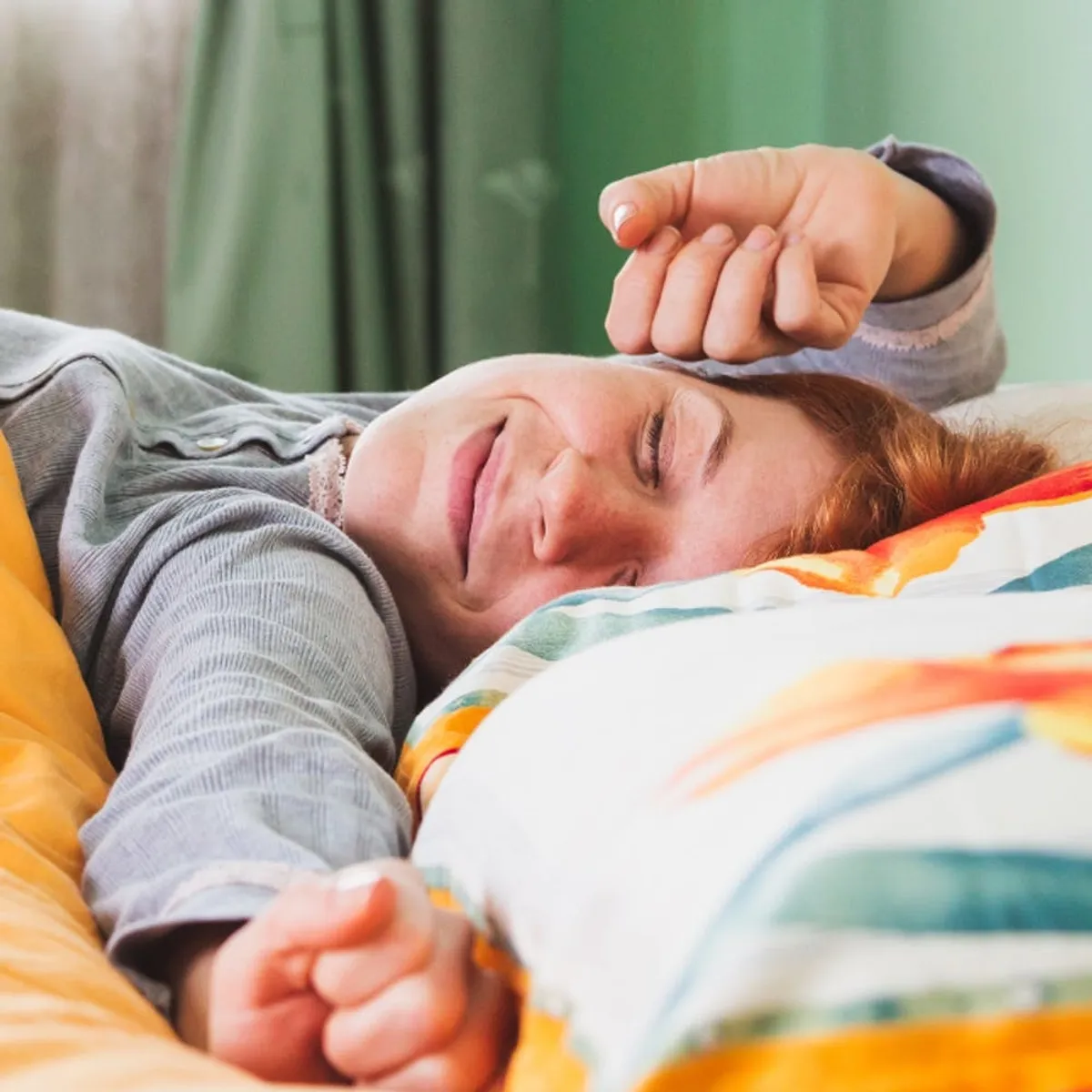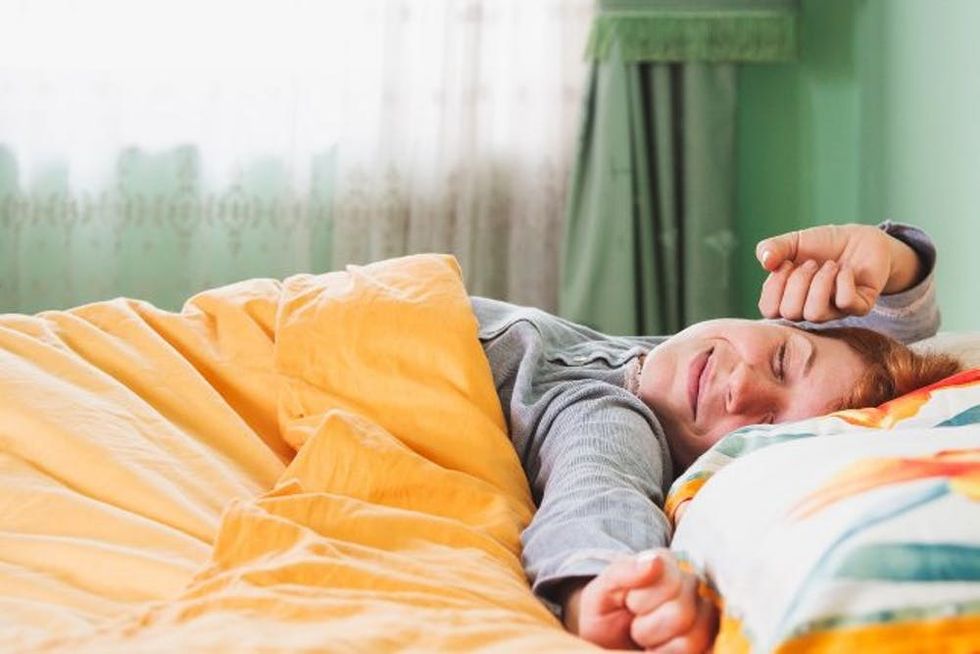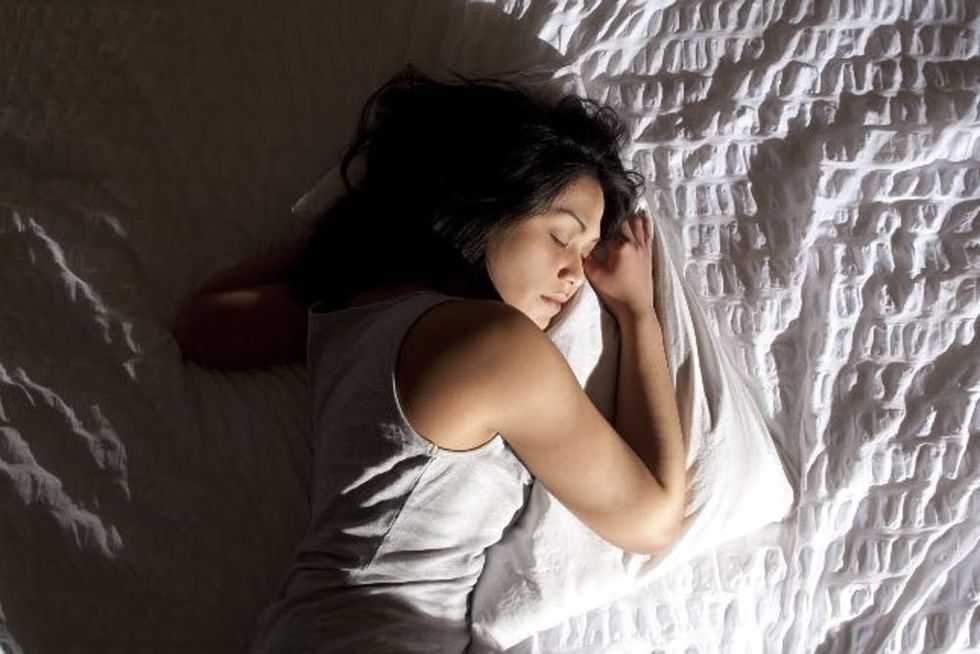Max out your dreamtime benefits.
4 Simple Ways to Get Better Sleep

As we bet you’ve heard, sleep is quite the miracle drug — not only does it improve focus and creativity, but it can even help you live longer. But modern life means you’re juggling a lot of responsibilities, and being “productive” often means going on as little as four or five hours of sleep a night. When you’re working both ends of the clock, staying up late to catch up on your Instagram feed, waking early for your morning yoga, and keeping up your fab social life, you can end up treating sleep as a luxury when it’s really not. Avoiding sleep deprivation might be nearly impossible given your commitments, but you can at least improve the quality of the sleep you do get. Here are a few tips on how to catch some quality zzz’s.

1. Befriend your circadian rhythm. Your circadian rhythm is your body’s internal clock. When you build a regular sleeping schedule, you’re essentially teaching your body when to help you sleep and when to help wake up. Sleep schedules work well for kids, so it’s kind of weird that we turn our backs on them as we grow up. Sticking to a routine lets your body adjust to the change in the day and night cycle and relax right before you go to bed. When you keep your bedtime and wake-up time roughly the same day after day, you’ll find it easier to bounce back when you don’t catch enough shut-eye.
2. Keep your room dark. Your natural circadian rhythm is actually slightly longer than 24 hours, and light coming through your eyes resets that internal clock each day. In fact, sunlight is one of the most important signals to your brain that it’s time to wake up. Any level of brightness in your room interferes with your circadian rhythm, so it’s best to avoid all lights if you can. Switch off lamps and devices and draw your curtains or blinds shut. Enjoy some deep sleep in pitch darkness, and let the sun do its magic in the morning: Your brain will know.

3. Sleep in multiples of 90 minutes. You may have thought that sleep is one big blob of hibernation, but we actually sleep in 90-minute cycles. Each cycle starts with a light sleep, when you can easily be woken up; then comes deep sleep, when your brain and body really slow down and allow you to recover. At the end of the cycle comes REM (Rapid Eye Movement) sleep, which is when your brain wakes itself back up to take you on wild dreams. If you manage to awaken between two cycles, during a light sleep stage, you’ll wake up more refreshed and able to enjoy the rest of your day without having to make an afternoon latte stop. Not surprisingly, it’s pretty tricky to make yourself get up between your sleep cycles. But why not let technology do the dirty work? Apps like Sleep Time make for quick and easy options, and fancier sleep tracking devices like Sense are a great way to try to optimize your sleep.
4. Establish a mindfulness bedtime ritual. Gone are the days of getting tucked in after a bath, a bedtime story, and maybe a lullaby or two. But for us busy bees, a few minutes of mindfulness can do a pretty incredible job of soothing anxiety and preparing us for a night of rest. In fact, recent studies have proven mindful meditation can evoke a relaxation response, removing stress and increasing sleep quality. To get started, check out a free app like Aura, which gives you three-minute meditations. As you learn to focus on present experiences, thoughts, and emotions, mindfulness can not only improve your sleep habits, but also ease feelings of stress and fatigue, leading to overall well-being.
What do you find helps you get a good night’s rest? Tweet us your tips @BritandCo!
(Photos via Getty)


















